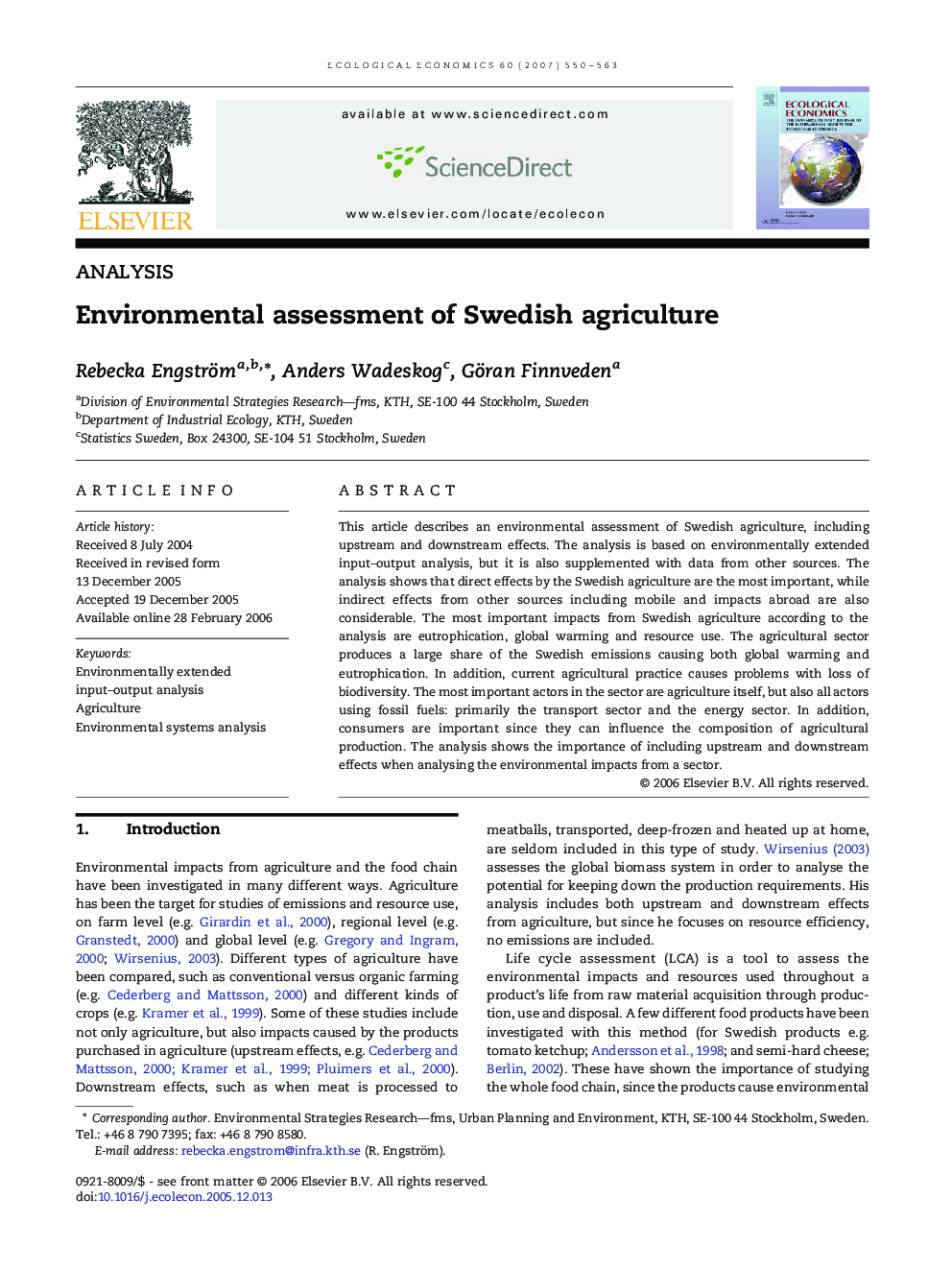| Article ID | Journal | Published Year | Pages | File Type |
|---|---|---|---|---|
| 5052246 | Ecological Economics | 2007 | 14 Pages |
This article describes an environmental assessment of Swedish agriculture, including upstream and downstream effects. The analysis is based on environmentally extended input-output analysis, but it is also supplemented with data from other sources. The analysis shows that direct effects by the Swedish agriculture are the most important, while indirect effects from other sources including mobile and impacts abroad are also considerable. The most important impacts from Swedish agriculture according to the analysis are eutrophication, global warming and resource use. The agricultural sector produces a large share of the Swedish emissions causing both global warming and eutrophication. In addition, current agricultural practice causes problems with loss of biodiversity. The most important actors in the sector are agriculture itself, but also all actors using fossil fuels: primarily the transport sector and the energy sector. In addition, consumers are important since they can influence the composition of agricultural production. The analysis shows the importance of including upstream and downstream effects when analysing the environmental impacts from a sector.
